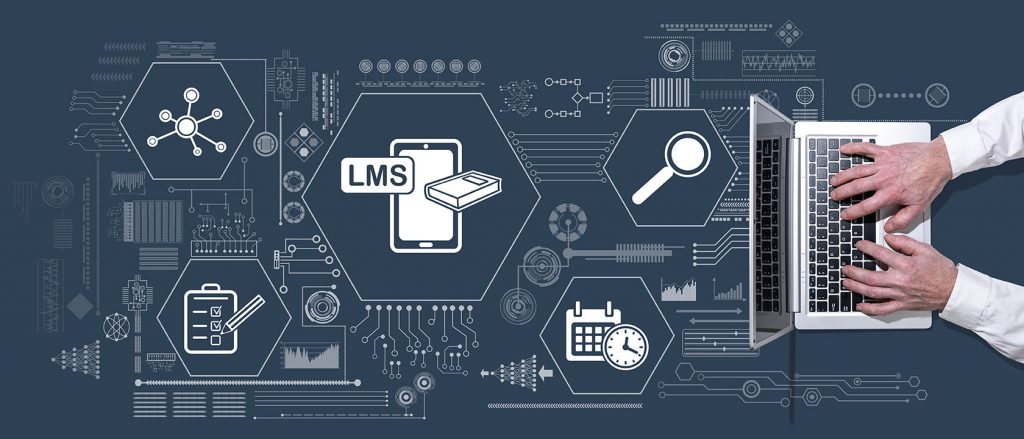Struggling to Scale Training? Here’s Why It’s Time to Rethink
Without an enterprise learning management system (LMS), training large teams can feel like an uphill battle. Relying on outdated or generic systems often results in:
- Training inconsistencies across locations and departments
- High administrative workload for HR teams
- Missed opportunities for skill development and compliance
These inefficiencies can slow down growth and affect overall productivity. An enterprise LMS offers a centralized platform to seamlessly manage training needs, ensuring a consistent learning experience for everyone. Read more about hot to choose an enterprise learning management system.
Traditional LMS vs. Enterprise LMS: Why the Difference Matters
Not all learning management systems are created equal. Traditional LMS platforms may work for small organizations, but they rarely meet the complex requirements of an enterprise. Here’s what sets an enterprise LMS apart:
- Scalability: Easily supports large, dispersed teams and multiple audiences.
- Integration: Works with tools like Salesforce, Zoom, and HR systems for streamlined operations.
- Advanced Analytics: Delivers insights into training effectiveness and ROI, helping leaders make informed decisions.
- AI-Driven Personalization: Adapts learning paths based on employee needs and performance.
For example, Docebo supports global companies by offering scalable, AI-powered features tailored to diverse training needs.
Top 5 Reasons Why Enterprises Need an LMS
1. Centralized Training Management
An enterprise LMS consolidates all training activities into one platform, making it easier to manage course creation, enrollment, and tracking. This reduces administrative overhead and ensures every employee has access to the same high-quality training material.
2. Enhanced Employee Engagement
Modern enterprise LMS platforms include features like gamification, social learning, and mobile access. These tools make training interactive and engaging, which helps employees stay motivated and retain knowledge.
3. Faster Onboarding and Compliance
A robust LMS simplifies the onboarding process by delivering standardized training modules. It also tracks compliance training progress and certifications, reducing risks associated with regulatory requirements.
4. Cost and Time Efficiency
By replacing in-person training sessions with online modules, enterprises can save significantly on logistics, instructor fees, and employee time. For example, a global design firm reported saving $60,000 annually after transitioning to an enterprise LMS.
5. Insight-Driven Growth
With detailed analytics, an enterprise LMS helps organizations identify skill gaps, measure training outcomes, and align learning initiatives with business objectives.
When Is an Enterprise LMS Essential?
Global Expansion
Scaling operations across regions? An enterprise LMS ensures consistent training delivery worldwide, accommodating multilingual and cultural needs.
Rapid Hiring or Reskilling
Hiring new talent or adapting to industry changes? An LMS accelerates onboarding and supports skill development to keep teams competitive.
Customer and Partner Education
Beyond employees, enterprise LMS platforms can train customers and partners, fostering stronger relationships and product adoption.
Compliance-Heavy Industries
Industries like finance and healthcare require rigorous compliance training. An enterprise LMS simplifies this with automated tracking and reporting.
Choosing the Right LMS for Your Needs
To make the most of an enterprise LMS, it’s essential to choose the right platform. Here are five leading options:
- Docebo: A cloud-based LMS offering AI-driven personalization and robust analytics for large organizations.
- Absorb LMS: Known for its user-friendly interface and detailed reporting capabilities.
- Google Classroom: Simple yet effective, integrates seamlessly with Google Workspace for collaboration.
- Moodle: Open-source flexibility for tailored enterprise training.
- TalentLMS: Mobile-friendly with gamification features for engaging learning experiences.
Each platform offers unique strengths, so the best choice depends on your organization’s specific goals and challenges.
Building a Culture of Continuous Learning
An enterprise LMS doesn’t just streamline training—it transforms how organizations approach learning. By fostering a culture of continuous skill development, businesses can:
- Retain top talent by offering growth opportunities
- Boost innovation with a well-trained, motivated workforce
- Stay competitive in an evolving market
Ready to Transform Training?
Take control of your training strategy with an enterprise LMS. From reducing costs to driving engagement, the right platform can revolutionize how your organization grows and adapts.
Which challenge will your enterprise solve first with an LMS? The decision you make today could shape your organization’s success for years to come.

